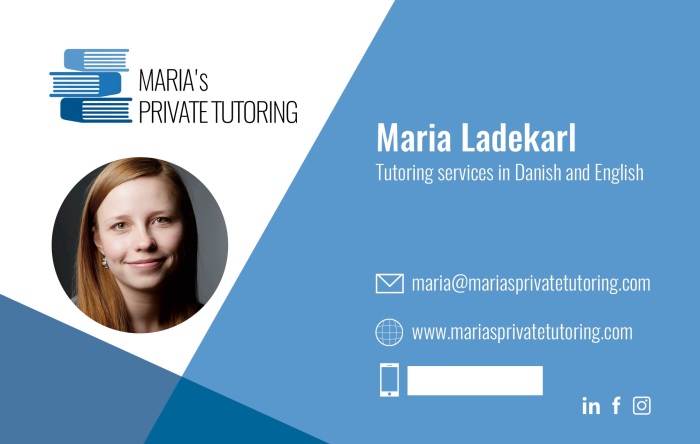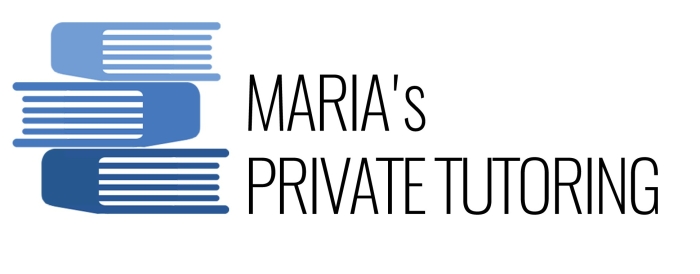Don’t feel like reading? Listen to the audio version here:
 My business card. The e-mail- and web address no longer work.
My business card. The e-mail- and web address no longer work.
In May last year, I went on sick leave. The reason? Early signs of depression.
So, I had been stable for a year around that time. I don’t remember the last time I was stable for that long; for the last maybe 6-7 years, I’ve had steady interruptions of depressions, and a few hypomanic episodes. So that year means a lot to me. I was able to really focus on my treatment, and I finally managed to finish my BA. I felt happy. I met someone very special, whom I love so, so much. I tended to my friendships, and I worked really hard on not working too hard. I used the strategies I’d learned, and continued to learn new ones. I had a steady place to live. The fact that I was in a good place was truly proven when someone very close to my heart died suddenly. I was heartbroken, and scared that I might fall into depression again. But I didn’t. With the help of those who love me, especially my boyfriend, as well as my psychiatrist, I got through it. It was awful, sad, and devastating – but I got through it.
When I finished my BA in January, I celebrated by taking a little trip to Skopje, Macedonia. I’d never been there before, and it was cheap, so I decided to go. I had such a wonderful time – can definitely recommend for a short holiday. Then, reality kicked back in. I had 4 and a half months left before I had to move out of my student apartment. I had to start applying for jobs to keep my dagpenge from a-kassen (see previous post). But I was super excited to start my own business, and couldn’t wait to get started.
In the beginning of April, I started the Start-Up programme through my a-kasse. It was so cool, and made me feel professional and important. We were 50 participants, each with their own idea for their own business. There were start-ups for video game companies, sustainable clothing, sustainable furniture, plenty of different consultant companies… even this super cool guy who wanted to make actual pianos, not just keyboards, in a small, practical size, so they would even fit in small apartments! Great ideas all around. And they all really liked my idea, as well.
It was going great. Until I began noticing certain behavioral changes.
It got more and more difficult for me to get up in the morning. I started having more migraines. Negative thoughts were seeping in, and my self-confidence and self-worth started going down a bit. Some social anxiety was brewing. So, I sat down and wrote all those symptoms in a notebook. Then, I got out my notes from my treatment at the hospital, including my ‘plan of action.’ I compared the two lists of symptoms, and there it was: a complete match.
Fuck.
Well, all I could do then was to follow my plan of action.
Following the plan
At that time, I’d already finished the programme at the hospital. But due to long waiting lists, my first appointment with my new psychiatrist was three months away. And I needed help asap. I’d been considering going to the psych emergency room (where I’d almost admitted myself back in February 2017), to try and get some help there. I told my GP about it, and she told me to go straight there when I left her clinic. I’d been in that situation before, as I wrote about in an earlier post, Why group therapy is amazing. Once again, I was assigned a therapist for home-visits, a doctor, and a psychologist. I was mainly in contact with Espen, my therapist, who played a big part in my recovery. He got me a mentor, who would soon become one of my most trusted allies to help me navigate the system. I’m sure I’ll write more about her in the future.
I did what the plan said: I applied for sick leave; spoke to my doctor; got temporary treatment through psych E.R.; talked and consulted with my dad about everything; reached out to friends for support; and, most importantly, took the situation seriously.
Going on sick leave isn’t easy, though. I could go on and on and try to explain the system here, but I’ll save that for another post. Let’s just say it’s complicated and draining.
What about Maria’s Private Tutoring?
I might have made it sound like quitting the programme and going on sick leave was an easy choice. It definitely was not. It’s always hard to admit when you need to pull the breaks, and realize that you’re incapable of continuing with something you’re really passionate about. I put my heart and soul in it, and having to put that back on a shelf was very, very hard. The final hit was when my website renewed, and it was expensive, and I had to decide whether or not to keep the website running and lose money. I decided to contact customer service, and ended up cancelling the renewal, got my money back, and my website was gone. Boom. Just like that.
I did what I could; saved all of the content, and took screenshots of all the pages, so that if I ever wanted to start it again, I could remember what it looked like.
I felt like a failure. Now I had to tell everyone that I wasn’t starting my company after all, which created a lot of confusion. Everyone had been so impressed by me, and how I was going to be an independent business woman. They all believed I could do it, and all expected me to excel and succeed. I expected myself to excel and succeed. But having to tell everyone that I gave up made me feel like… well, like I had given up. Failed.
Changing the focus from failing to start my own company to succeeding in preventing a depressive episode became the next step. Getting praise from practitionors on how I had picked up on my warning signals and actually acted on them really helped. They were all impressed with the fact that I had accomplished something that many people in my situation are not able to do. Something I hadn’t been able to do before. The more I talked about it and thought about it, I realized that it was actually a massive win for me. I successfully prevented going into a deep depression.
Of course, the symptoms didn’t just go away. I’ve been going to treatments ever since. Still am. But it doesn’t change the fact that I’m doing pretty well; I’m working to get myself back on my feet, and I’ve been stable for about a month and a half. On Tuesday, I start my 13-week internship at Depressionsforeningen (the association for depression and bipolar). Super damn excited! Two days a week, three hours per day. A good place to start.
Maybe one day Maria’s Private Tutoring will be revived. But not within the foreseeable future. My life demands other priorities at this time. And I’m okay with that.

